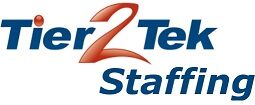In today’s rapidly evolving job market, the role of recruitment agencies has become more crucial than ever. As the global economy grapples with the challenges of unemployment and the dynamic nature of job requirements, these agencies stand at the forefront of bridging the gap between job seekers and employers. The key phrase, “The Role of Recruitment Agencies in Reducing Unemployment,” encapsulates a vital function in the modern employment landscape. These agencies are not just facilitators of employment; they are pivotal players in shaping the workforce, adapting to industry trends, and ultimately, influencing the rate of unemployment.
Recruitment agencies have evolved from being mere intermediaries to becoming strategic partners in the employment sector. They offer a unique vantage point, having insights into both the needs of employers and the aspirations of job seekers. This dual perspective enables them to play a significant role in reducing unemployment by efficiently matching the right candidate with the right job. In this article, we delve into the multifaceted contributions of recruitment agencies, exploring how their innovative strategies, deep understanding of the job market, and proactive approach contribute significantly to reducing unemployment rates.
Recruitment Strategies and Unemployment
In the intricate dance of the job market, recruitment strategies employed by agencies play a pivotal role in mitigating unemployment. These strategies are not just about filling positions but are about understanding the nuanced needs of both employers and job seekers, and creating a harmonious match between the two.
Understanding the Market Needs
The first step in effective recruitment is a deep understanding of the market. Recruitment agencies invest time and resources in analyzing market trends, understanding industry-specific skills requirements, and identifying gaps in the labor market. This comprehensive understanding allows them to anticipate employer needs and prepare a workforce that is equipped to meet these demands.
Candidate Sourcing and Outreach
Recruitment agencies use a variety of methods to source candidates. This includes leveraging social media platforms, attending career fairs, and utilizing job boards. More importantly, they often have access to a vast pool of passive candidates – those not actively seeking a new job but open to opportunities. Reaching out to these candidates can often lead to filling positions more effectively, thereby reducing the time a job remains vacant and indirectly impacting unemployment rates.

- Leveraging Online Platforms: Utilizing job boards, social media, and professional networking sites to reach a wide pool of candidates.
- Engaging Passive Candidates: Targeting individuals who are not actively seeking new opportunities but may be interested if approached.
- Referral Programs: Encouraging current employees or contacts to refer suitable candidates, often with incentives.
- Career Fairs and Networking Events: Participating in industry-specific events to connect with potential candidates in person.
- Targeted Recruitment Campaigns: Creating specific campaigns aimed at attracting candidates with desired skills or from certain demographic groups.
Skill Matching and Job Customization
One of the key strengths of recruitment agencies is their ability to match a candidate’s skills with the job requirements. This is not just about matching keywords on a resume with a job description. It involves a deeper understanding of a candidate’s potential, their soft skills, and their ability to grow within a role. Furthermore, agencies often work with employers to customize job roles to fit the skills available in the job market, thereby creating new employment opportunities.
Speed and Efficiency in Hiring
Speed is crucial in the recruitment process. The faster a vacancy is filled, the better it is for both the employer and the job market. Recruitment agencies streamline the hiring process, reducing the time-to-hire through efficient screening and interviewing processes. This efficiency not only benefits the employer but also contributes to reducing overall unemployment by quickly moving candidates into open positions.
- Streamlined Recruitment Process: Simplifying and standardizing the recruitment process to reduce time-to-hire.
- Advanced Applicant Tracking Systems (ATS): Utilizing ATS to automate and manage candidate applications efficiently.
- Pre-screening Techniques: Implementing effective pre-screening methods like initial online assessments or phone interviews to quickly identify suitable candidates.
- Effective Job Descriptions: Crafting clear and concise job descriptions to attract the right candidates from the start.
- Responsive Communication: Maintaining timely and clear communication with candidates to keep them engaged and informed.
- Building a Talent Pool: Creating a reserve of pre-vetted candidates for future openings to expedite the hiring process.
Training and Upskilling
Many recruitment agencies go beyond mere placement; they invest in training and upskilling candidates to meet specific job requirements. This not only makes candidates more employable but also helps in filling skill gaps in the market, thus contributing to a reduction in unemployment.
Long-Term Employment Strategies
Recruitment agencies also focus on long-term employment strategies. This includes understanding future industry trends and preparing the workforce accordingly. By anticipating future skills requirements, they help in creating a more resilient job market that can better withstand economic fluctuations.
- Forecasting Future Skill Needs: Anticipating the skills that will be in demand in the future and preparing the workforce accordingly.
- Career Development Programs: Implementing programs that focus on the continuous development of employees’ skills and career growth.
- Succession Planning: Identifying and developing new leaders within the organization to ensure a smooth transition in key positions.
- Workforce Diversification: Ensuring a diverse workforce to bring different perspectives and ideas, enhancing innovation and adaptability.
- Building Employer Brand: Establishing a strong employer brand that attracts and retains top talent.
Partnerships with Educational Institutions
Some recruitment agencies partner with educational institutions to align curriculum with industry needs. This ensures that graduates are job-ready and have the skills that are in demand, thereby reducing the gap between education and employment.

The Role of Technology in Recruitment
Technology plays a significant role in modern recruitment strategies. From AI-driven applicant tracking systems to data analytics for predicting hiring trends, technology enables agencies to be more efficient and effective in their recruitment processes.
Impact on Reducing Unemployment
All these strategies collectively contribute to reducing unemployment. By efficiently matching the right candidate to the right job, reducing hiring times, and preparing the workforce for future needs, recruitment agencies play a crucial role in maintaining a healthy job market.
The strategies employed by recruitment agencies are multifaceted and dynamic. They are not just filling job vacancies but are actively involved in shaping a workforce that is adaptable, skilled, and ready to meet the evolving demands of the job market. Their role in reducing unemployment is significant and indispensable in the modern employment landscape.
FAQs
Recruitment agencies play a crucial role in reducing unemployment by efficiently matching job seekers with suitable job openings. They bridge the gap between employers and potential employees, helping to fill vacancies faster and more effectively.
Recruitment agencies stay abreast of changing market trends through continuous research, networking, and leveraging data analytics. They adapt their strategies to meet the evolving needs of both employers and job seekers in various industries.
Recruitment agencies are efficient due to their expertise in the hiring process, access to extensive candidate databases, use of advanced technology like ATS, and their ability to quickly screen and shortlist suitable candidates.
Recruitment agencies ensure the right match by thoroughly understanding the job requirements and the candidate’s skills, experience, and career goals. They also consider company culture and the potential for long-term success in the role.
